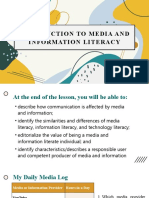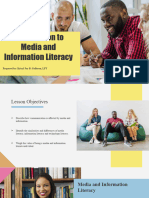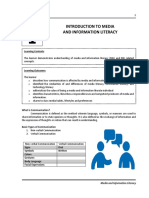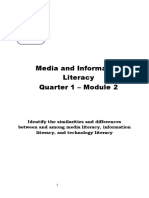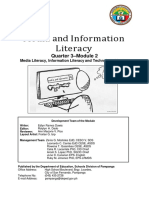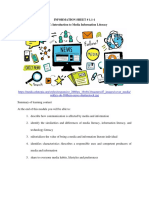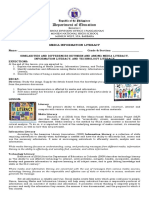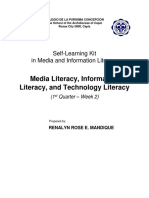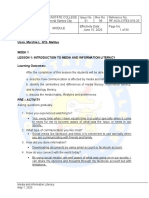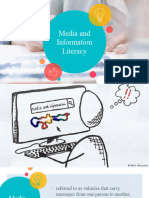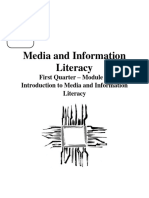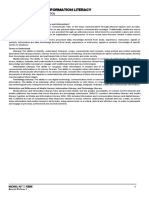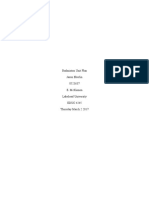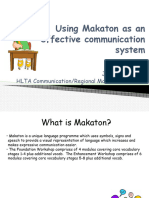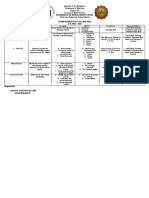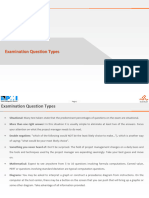0% found this document useful (0 votes)
9 views22 pagesMil Lesson 2
This lesson introduces media, information, and technology literacy, highlighting their similarities and differences. It emphasizes the importance of these literacies in critical thinking, responsible media consumption, and effective information use in various contexts. The module also outlines the skills associated with each type of literacy and their relevance in today's digital environment.
Uploaded by
MayonnaiseCopyright
© © All Rights Reserved
We take content rights seriously. If you suspect this is your content, claim it here.
Available Formats
Download as PDF, TXT or read online on Scribd
0% found this document useful (0 votes)
9 views22 pagesMil Lesson 2
This lesson introduces media, information, and technology literacy, highlighting their similarities and differences. It emphasizes the importance of these literacies in critical thinking, responsible media consumption, and effective information use in various contexts. The module also outlines the skills associated with each type of literacy and their relevance in today's digital environment.
Uploaded by
MayonnaiseCopyright
© © All Rights Reserved
We take content rights seriously. If you suspect this is your content, claim it here.
Available Formats
Download as PDF, TXT or read online on Scribd
/ 22




